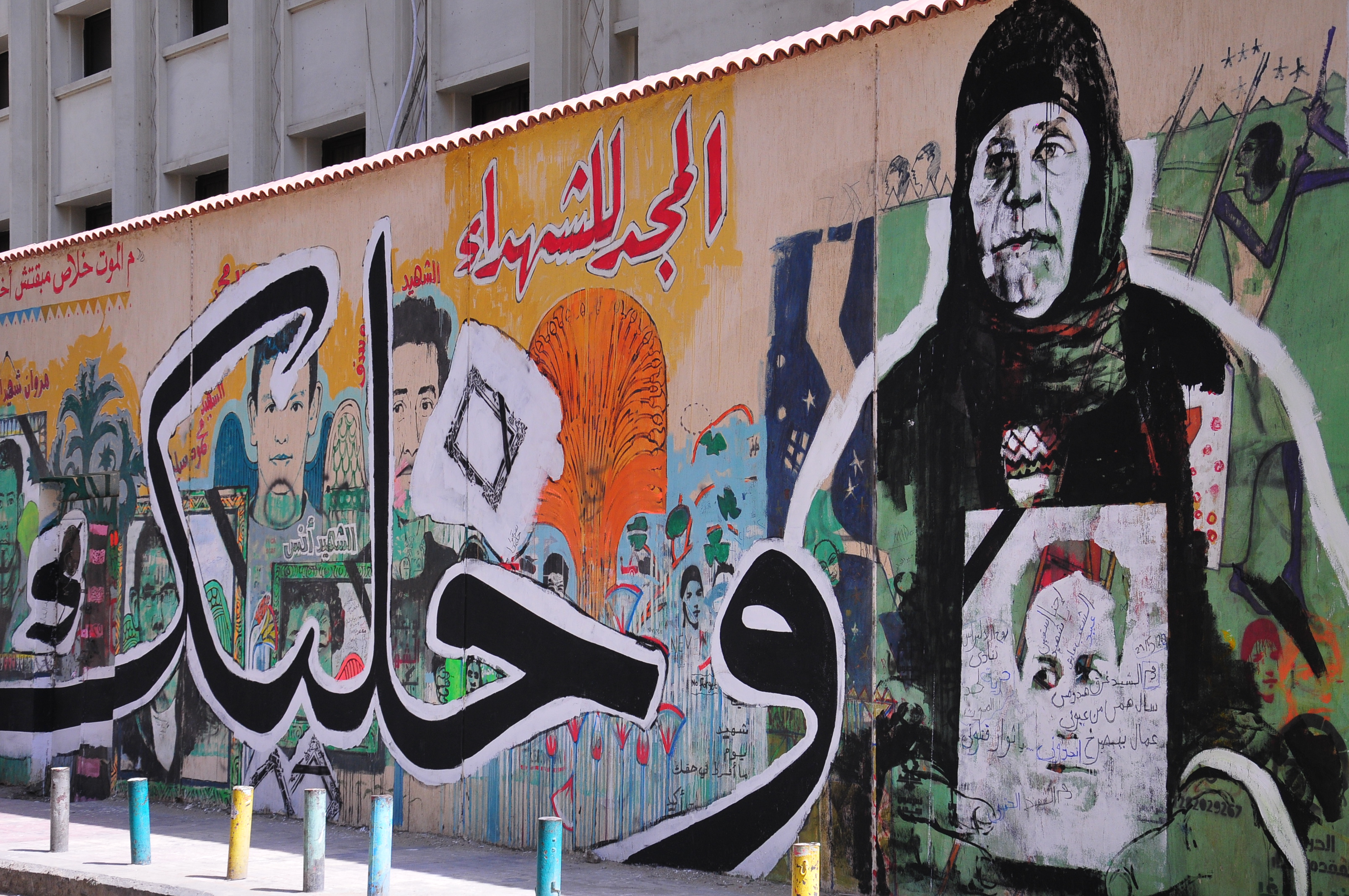Colourful testaments
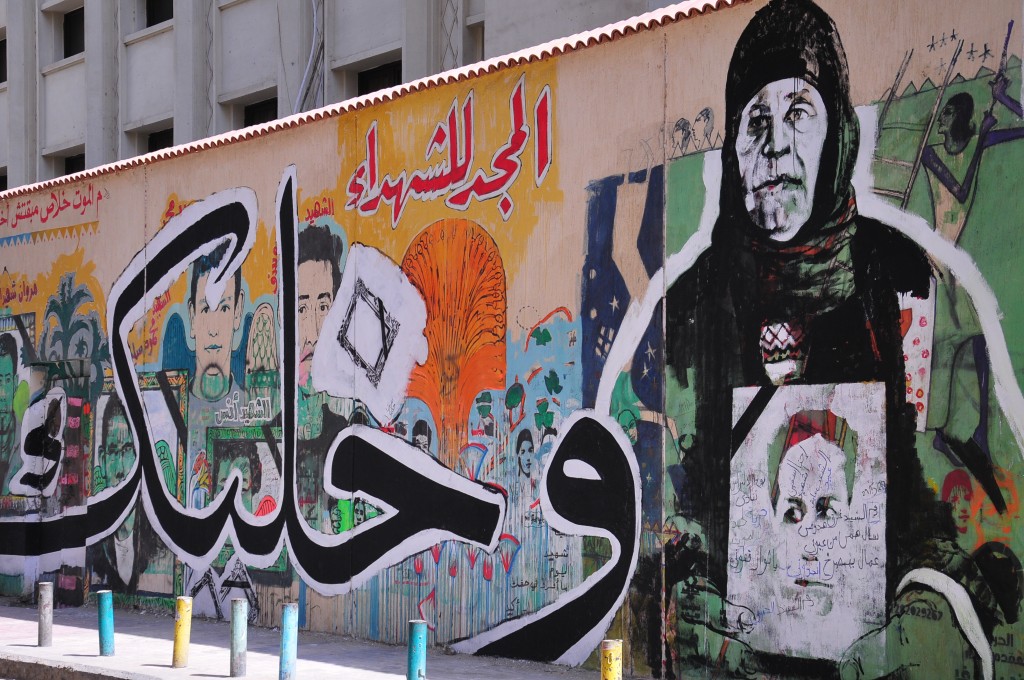
Hassan Ibrahim
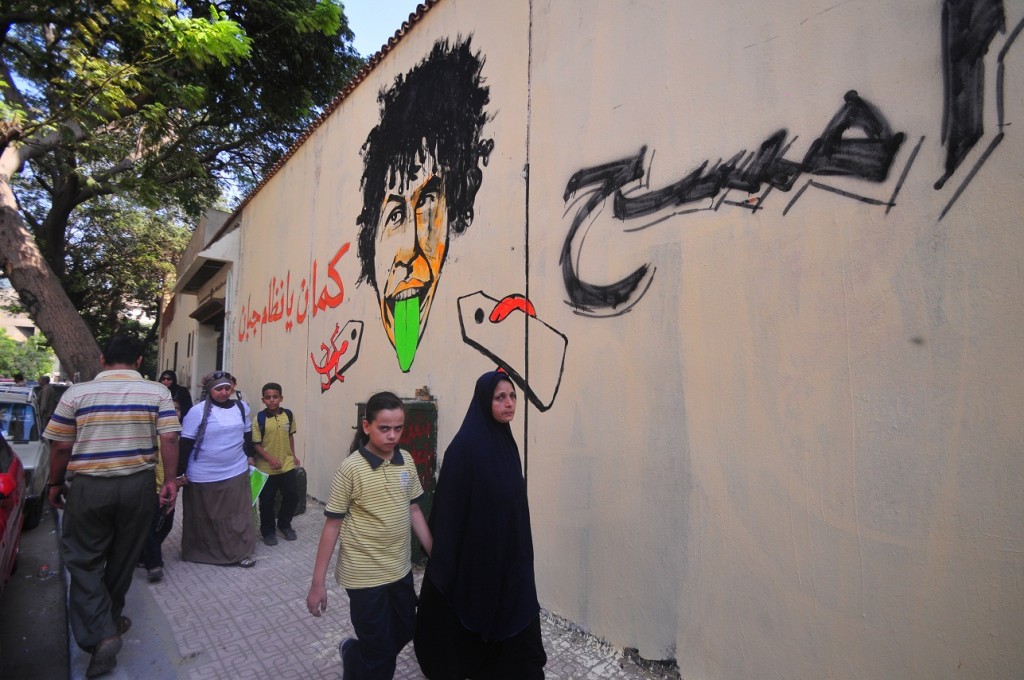
Hassan Ibrahim
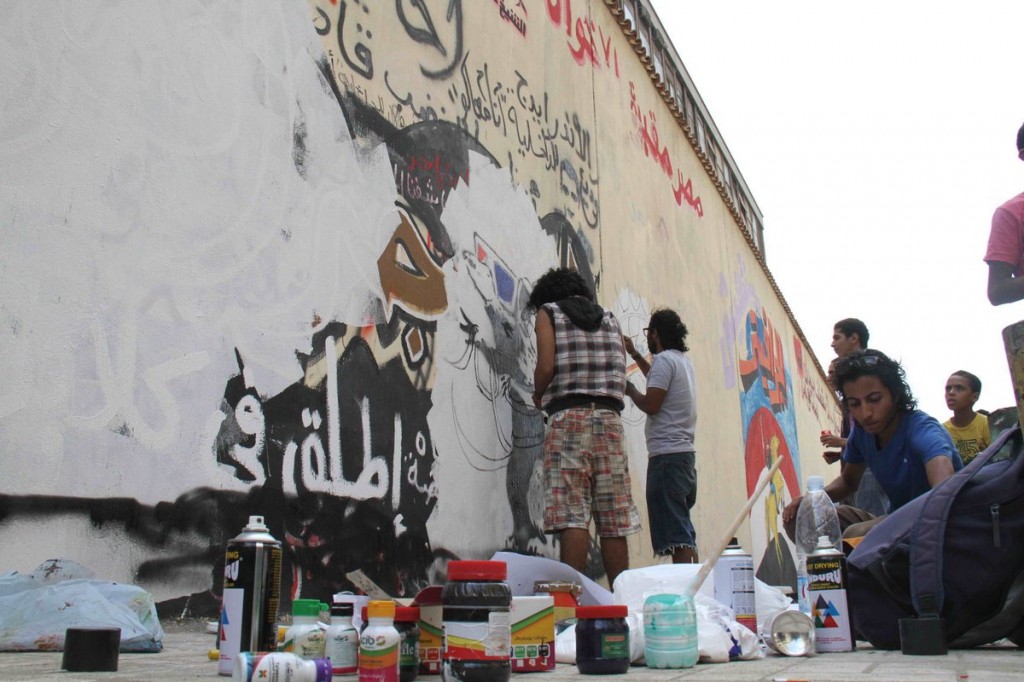
Mohamed Omar
The walls surrounding Mohamed Mahmoud Street reflected its story in colourful images drawn by the city’s graffiti artists. Overnight, sorrow, defiance and remembrance were expressed in what became iconic representations of the uprising of the Egyptians.
On 19 September Cairo woke up to empty walls; late at night, on orders of the government, all graffiti had been covered by beige paint in an attempt to obliterate the memories that live vividly in the minds of those that fought for freedom and dignity.
True to the very nature of the temporary art form, artists arrived in droves to use the blank canvas the city had created and filled the walls anew.
The walls of Mohamed Mahmoud will never be silent; its story too important to ever be forgotten.
Legacy of Cairo’s lovers
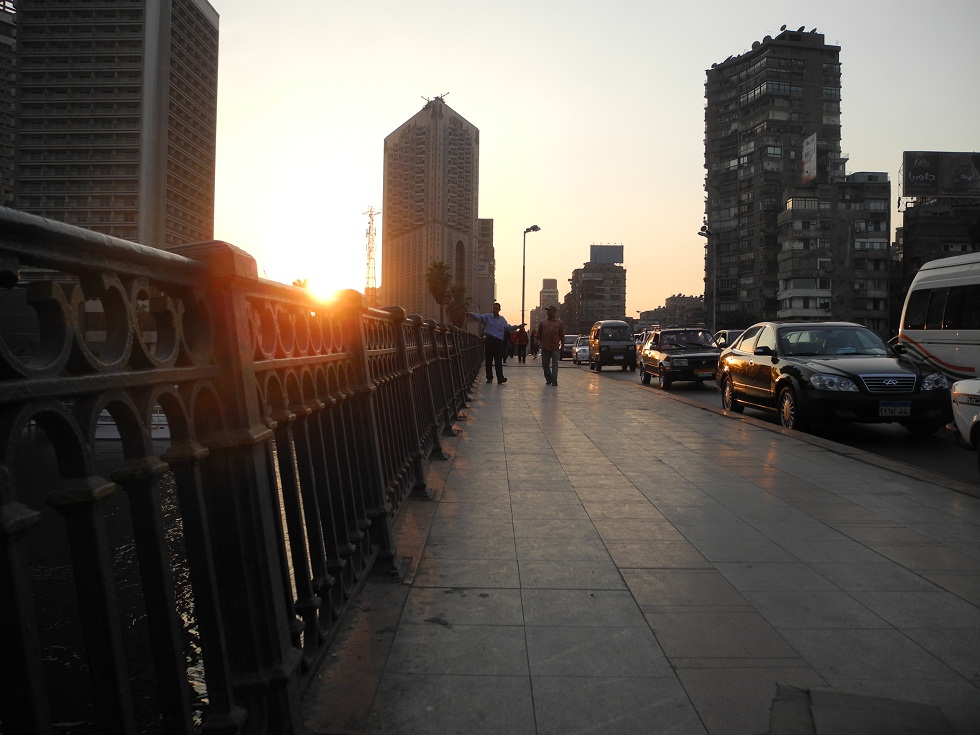
Omar ElAdl
The many bridges that span the Nile provide more than just a way to cross the river; they are one of the most popular places for secret encounters. Restricted by a conservative culture, people in love need to meet outside and gazing at the flowing water offers the perfect opportunity for soft conversation. At any time of day you can find them, huddled close together, leaning against the railings of the bridges.
The bridges guard their secrets but over the years the couples have left their collective imprint on the structures; the once straight railings are succumbing under the weight of thousands of illicit rendezvous.
Trains in the Cairo nights
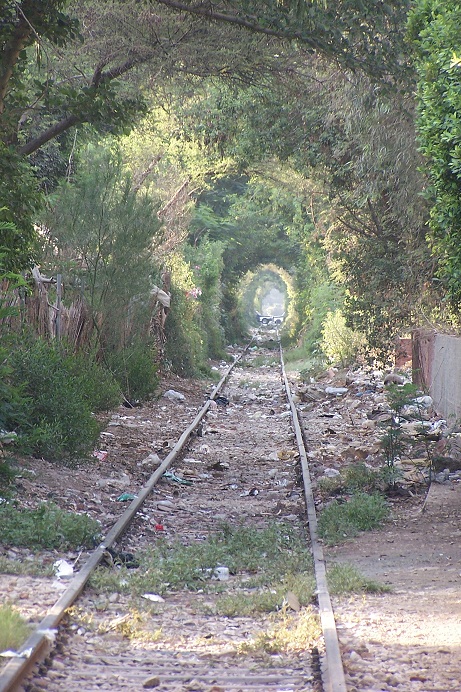
DNE Archive
The railroad that traverses Maadi seems a relic from a time long past; grass grows between the iron rails and the trees that grow on the sides of the track join high in the air to form a tunnel of leaves. But looks are deceiving – late in the evenings, when the suburban stillness has spread over the Maadi streets, horns of the engines blare out into the silence of the night, warning those still about that a train is moving along the tracks.
Leaving a mark

Omar ElAdl
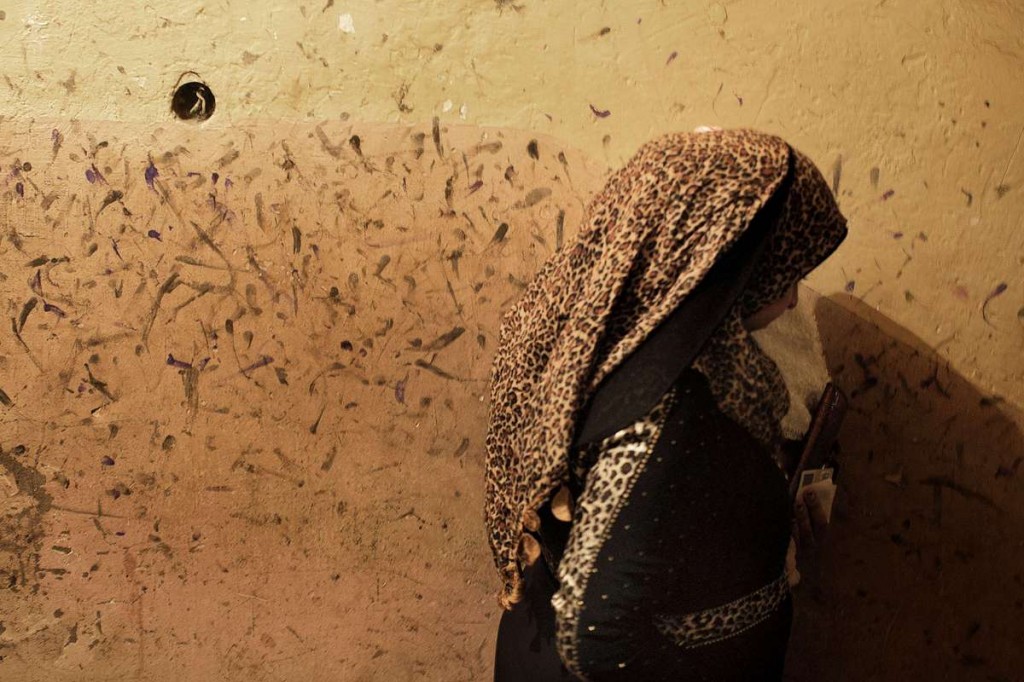
AFP Photo
Egyptians have cast their vote in several referenda and elections since 25 January 2011, often amid heated debate and deep divisions between voters.
Yet they line up for hours to cast their vote and make their voice heard, insistent on leaving a mark on Egypt’s changing society.
No matter how divided the electorate is, voters from both sides have developed a habit that leaves a mark on the premises they cast their votes in. On their way home they wipe their fingers on the walls to get rid of the excess of ink on their fingers that indicates they have voted.
Seeing red
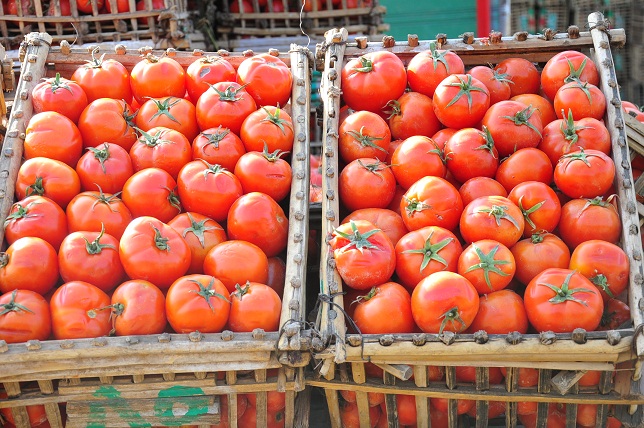
Hassan Ibrahim
The signs that summer has come and gone are everywhere in the streets of Cairo.
The little fruit and veggie stands that line many streets of the capital usually give the first indication that a season is about to change. The battikh and mangoes have nearly completely disappeared and have been replaced with shiny, bright red, juicy deliciousness that taste great in salads, sauces and soups.
So if you are stuck in traffic and see red do not worry; it are the tasty tomatoes that you are seeing.
Silencing dissent
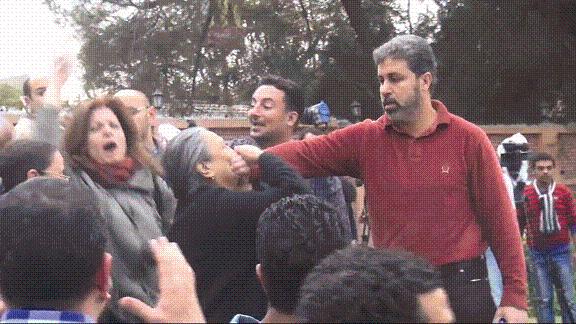
Screenshot from Al Watan
Freedom was one of the key demands of the 25 January uprising. Fear of limitations on freedom of speech and women’s rights as laid out in the draft constitution is one of the reasons many Egyptians have taken to the streets in the past weeks.
Shahenda Meqled is a famous Egyptian activist who has fought for the rights of farmers for many years. On Wednesday she was protesting close to the Presidential Palace when a large, bearded man calmly took it in his own hands to silence her. Literally.
The image speaks louder than anything Shahenda Maqled could have said.
